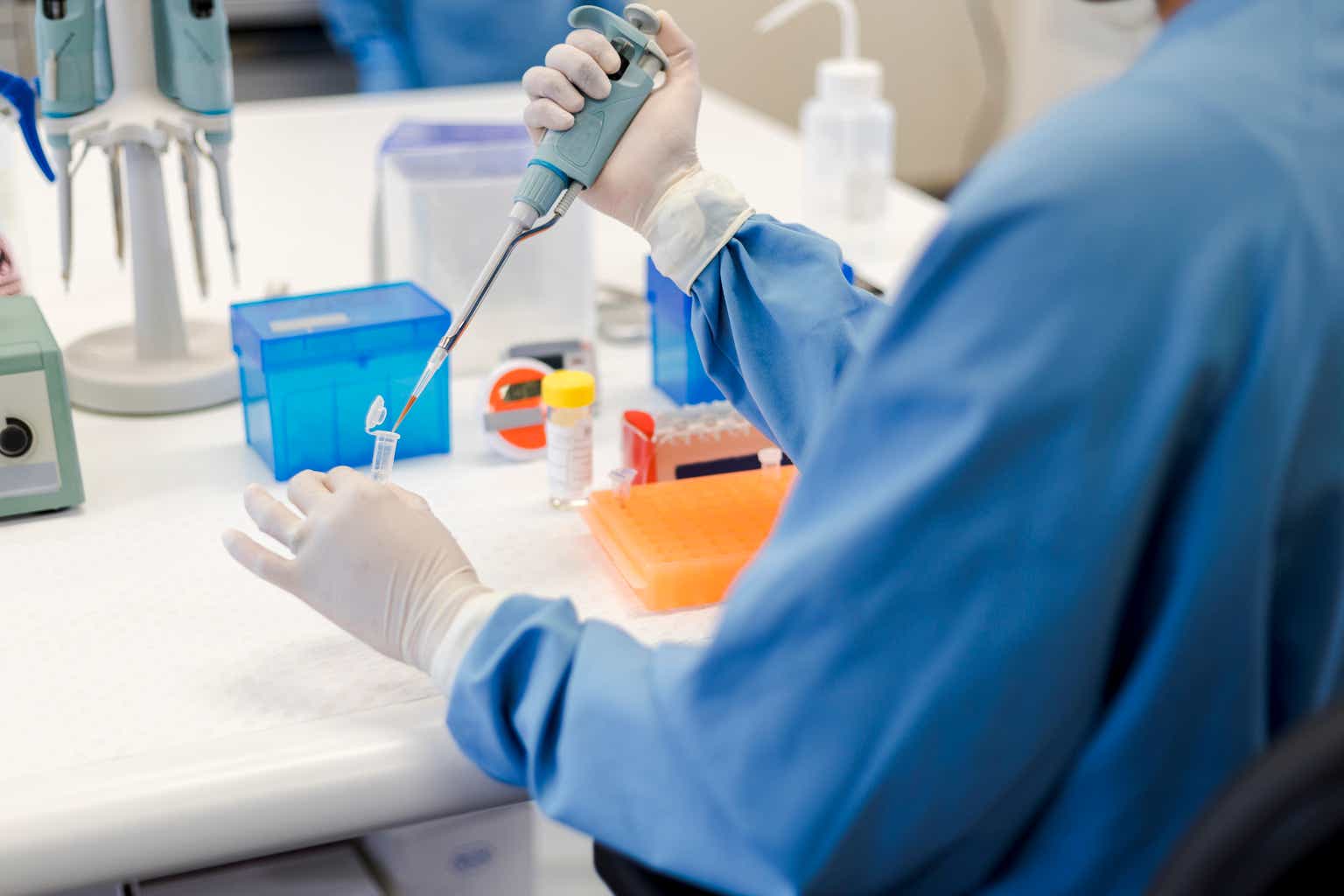Deals and Financings
Japan’s Takeda (TAK, OTCPK:TKPHF; TSE: 4502) acquired global rights to an Alzheimer’s therapy developed by AC Immune SA (ACIU) of Switzerland for $100 million upfront and up to $2.1 billion in milestone payments (see story). With the $100 million, Takeda owns an option to license AC Immune’s active immunotherapies that target toxic forms of amyloid beta (Abeta), including ACI-24.060. ACI-24.060 is an anti-Abeta active immunotherapy candidate aimed at reducing the toxic forms of Abeta believed to drive plaque formation and Alzheimer’s disease progression. Currently, ACI-24.060 is being tested in a double-blind, placebo-controlled Phase Ib/II trial in subjects with mild Alzheimer’s disease and in adults with Down’s syndrome.
San Diego’s Erasca (ERAS) acquired rights for two China-developed pre-clinical RAS candidates in two separate agreements, while it is sidelining two of its own candidates and temporarily discontinuing development on a third candidate. Erasca will also raise $160 million from investors. The company acquired ex-China rights to a pan-RAS molecular glue (ERAS-0015) from Joyo Pharmatech of Guangzhou in a $189 million deal and global rights to a pan-KRAS inhibitor (ERAS-4001) from Sichuan Medshine Discovery in a $170 million agreement.
Shenzhen Beimei Pharma acquired greater China rights for Twyneo, a therapy for acne vulgaris, from Israel’s Sol-Gel (SLGL) for $15 million. Sol-Gel will be eligible to receive up to $10 million in upfront and regulator milestones. The remaining $5 million is potential royalty payments. Twyneo is the only fixed-dose combination of tretinoin and benzoyl peroxide cream available in the US; it is approved to treat acne vulgaris in adults and pediatric patients. Beimei markets products for pediatrics patients with a portfolio of more than 40 drugs approved or in the pipeline.
Trials and Approvals
Shanghai’s Zai Lab (ZLAB; HK: 9688) reported China’s NMPA approved Augtyro (repotrectinib) as a treatment for adult patients with locally advanced or metastatic ROS1-positive non-small cell lung cancer (NSCLC) (see story). The approval is based on an open-label, single-arm, Phase I/II trial that evaluated repotrectinib in TKI-naïve and TKI-pretreated patients with ROS1-positive NSCLC. In 2020, Zai Lab acquired China rights to the drug from Turning Point Therapeutics of San Diego for $25 million upfront and up to $151 million in milestones, plus royalties. Turning Point is now a division of Bristol-Myers Squibb (BMY).
Shanghai Everest Medicines (HK: 1952) launched Nefecon, a treatment for IgA nephropathy (IgAN), in China by filling the first prescription. IgAN, a rare disease that accounts for 35-50% of glomerular disease cases in China, can cause end-stage renal disease that is treated by kidney replacement or dialysis. Nefecon is a targeted-release formulation of budesonide, a second-generation synthetic corticosteroid. In 2019, Everest acquired greater China rights to the drug from Calliditas Therapeutics (CALT, OTCPK:CLTEF) of Sweden in a $121 million agreement. Nefecon is already approved in the US and EU.
Suzhou Ractigen Therapeutics reported that a China IND was approved for RAG-17 as a therapy for Amyotrophic Lateral Sclerosis (ALS). RAG-17 is a therapeutic siRNA designed to suppress the SOD1 gene in ALS patients with pathogenic mutations. Of the more than 50 genes associated with ALS, SOD1 gene mutations account for approximately 20% of the cases. Using Ractigen’s proprietary SCAD delivery platform, RAG-17 combines siRNA with an accessory oligonucleotide to improve efficacy in central nervous system tissues. In preclinical studies, RAG-17 showed the ability to improve motor function and prolong survival.
Beijing InnoCare Pharma (OTCPK:INCPF; HK: 09969; SHA: 688428) has completed the enrollment process in a China Phase II trial of ICP-488, a potential psoriasis therapy (see story). ICP-488 is a TYK2 (tyrosine kinase 2) JH2 allosteric inhibitor. The trial enrolled 129 patients who were randomized to one of three treatment groups in a 1:1:1 ratio: a 6mg once-daily group, a 9mg once-daily group, and a placebo group, for 12 consecutive weeks of treatment. By binding the JH2 domain, ICP-488 blocks the signal transduction of IL-23, IL-12, type 1 IFN and other inflammatory cytokines.
Shanghai Mabwell (SHA: 688062) reported positive data from a China trial of its novel Nectin-4-targeting ADC for triple-negative breast cancer. In 20 patients with advanced or metastatic disease, 50% reported an objective response and 80% experienced disease control. One patient had a complete response that has continued for 20 months so far. Mabwell says a China IND for the drug, 9MW2821, has also been accepted in combination with an immune checkpoint inhibitor. According to the company, 9MW2821 is the first the Nectin-4-targeting ADC developed by a Chinese company to start clinical trials.
Nanjing IASO Bio announced that Science Immunology, a sub-journal of Science, published a single-cell analysis of its anti-BCMA CAR T cell therapy in patients with neuromyelitis optica spectrum disorder (NMOSD). NMOSD is an autoimmune disease that usually occurs in the optic nerve and spinal cord, though it can affect the brain. The disease, which occurs in flare-ups that can cause muscle weakness or blindness, is sometimes misdiagnosed as multiple myeloma. Last year, IASO and its partner, Innovent (OTCPK:IVBIY, OTCPK:IVBXF), were approved in China to launch Equecabtagene Autoleucel, an anti-BCMA CAR T drug, as a fourth-line therapy for multiple myeloma.
Original Post
Editor’s Note: The summary bullets for this article were chosen by Seeking Alpha editors.
Read the full article here













